Search
51314-4479-Temperature Effects on a Galvanic Anode - Steel in Concrete System
Also Purchased
51313-02840-Modeling Performance of Galvanic Point Anodes for CP of Reinforcing Steel in Concrete Repairs
Product Number:
51313-02840-SG
ISBN:
02840 2013 CP
Publication Date:
2013
$20.00
02263 Impressed Current and Galvanic Discrete Anode Cathodic Protection for Corrosion Protection of Concrete Structures
Product Number:
51300-02263-SG
ISBN:
02263 2002 CP
Publication Date:
2002
$20.00
04037The Design and Performance of Polymeric Anode, Cathodic Protection Systems on Burmed LPG Bullet Tanks and on Above Ground Storage Tank Bottoms
Product Number:
51300-04037-SG
ISBN:
04037 2004 CP
$20.00




